‘Based on a True Story’ is eye-catching, head-turning and ticket-worthy for many movie fans. For horror, this tagline alone and its message is especially enticing and ups the ante on all other movies playing that week in theaters. Quite simply: it sells. But what does ‘based on a true story’ really mean? As movie-goers, how much can we hold such a movie accountable as being truthful towards the real persons and events it portrays?
Advertising that a movie is based in a true story goes back to 1899 with the short film Major Wilson’s Last Stand. However, the first major horror genre Hollywood film to be inspired by real events was Rope in 1948. Directed by the legendary Alfred Hitchcock, Rope takes the story of a 14 year-old boy named Bobby Franks who was kidnapped and murdered by two students (named Nathan Leopold and Richard Loeb) attending the University of Chicago in 1924. They believed that in their superior intellect, they would be able to pull off the perfect crime. Ultimately the two were arrested and sentenced to life plus 99 years in prison, each. The film cleans up the real story for 1940s audiences by replacing the teenage victim with a man roughly the same age as his murderers, along with other creative liberties.
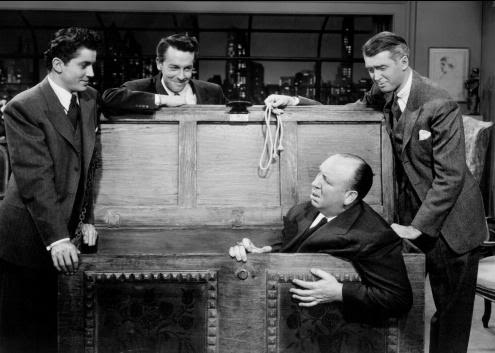
It is without a doubt, that films like Rope and others that claim to be based on true events dramatize their plots for the sake of story. But how much is too much?
One former gawker.com writer aimed to find out in 2012, Cord Jefferson contacted the Motion Picture Association of America (MPAA). He writes: “I asked for an explanation of what a movie must do to be able to sell itself as being based on a true story. “Is there a minimum percentage of truth that needs to be in the plot?” I asked. The MPAA’s response: “The MPAA Advertising Administration does not determine whether a film is designated to be ‘based on true events’—that is the purview of the producer or distributor of the film.”
The first paranormal horror film with a plot based on truthful events came in the form of The Exorcist in 1973. We’ve talked about the alleged real events surrounding this story in depth, you can read more here. Based on a 1949 case of possession, William Blatty published a novel by the same name after learning about the possession while attending Georgetown University. Just how much of the story is based in fact is still debated today.
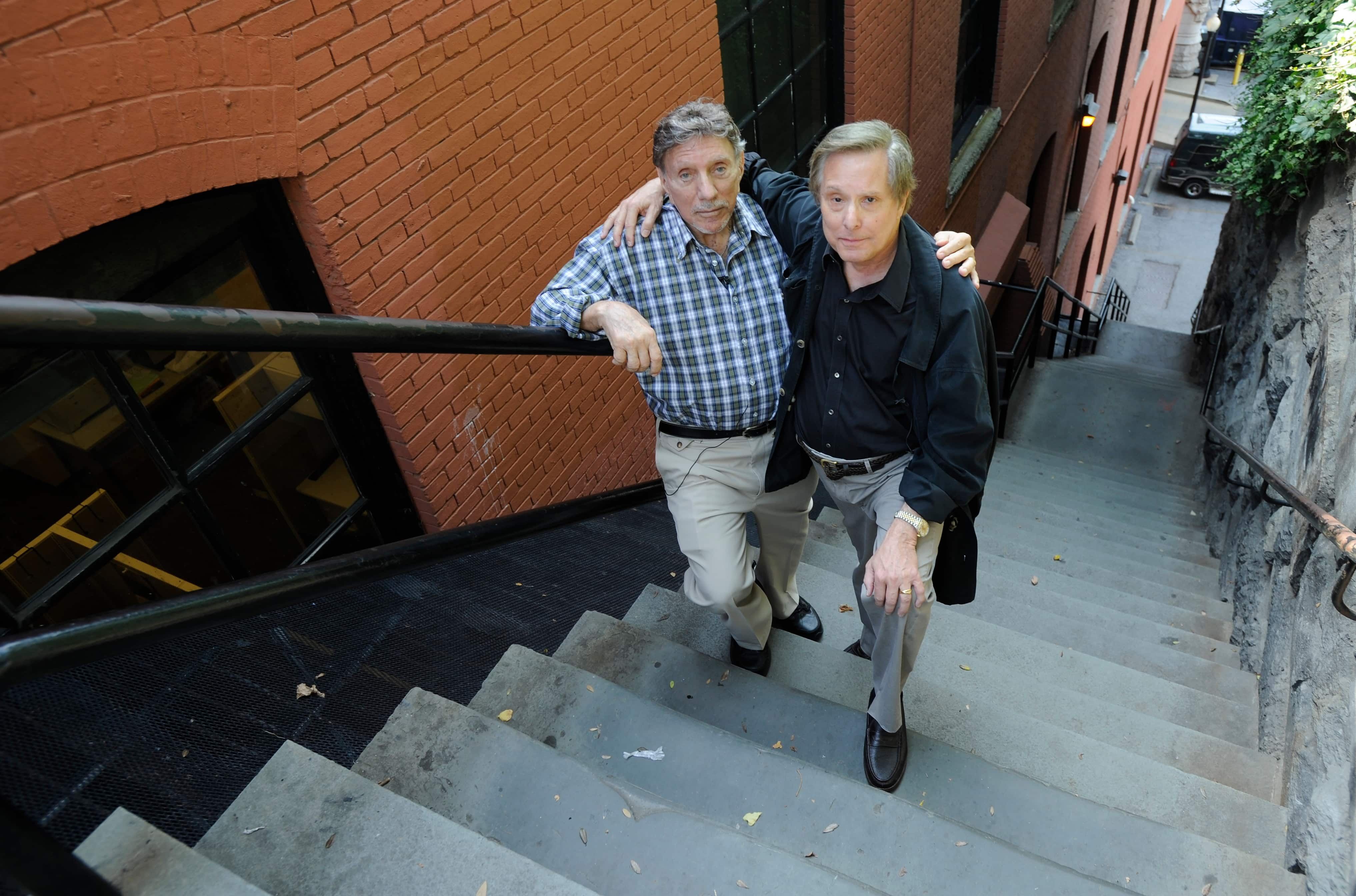
Many other paranormal horror films have since emerged having claimed the same truthfulness to their audiences. One of the most recent box office success the 2013 film, The Conjuring. The film grossed $318 million from a $20 million budget and broke the record for the biggest opening for an R-rated horror film. The story of the Perron family and the haunting they endure is solidified when the credits roll, showing real photos taken from the Perron family album. In a USA Today interview, the eldest of the Perron children said that the film has “many elements of truth to it, and some moments of fiction.”
The movie did not avoid controversy, however, and suffered a lawsuit when Norma Sutcliffe and Gerald Helfrich sued James Wan, and Warner Bros. Sutcliffe and Helfrich, the owners of the house which was used to film the movie, saying that their property has been continuously trespassed and even vandalized since the film’s release. Both owners state that while they’ve owned the property between 1987 and 2012, they have lived “in peace” – implying there have been no real paranormal occurrences during that time.
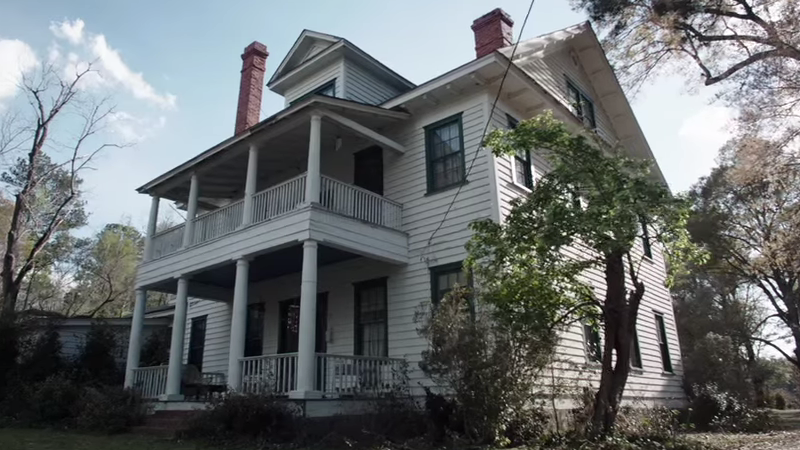
The highly successful film has produced spin-offs and sequels, including The Conjuring 2 (2013) and Annabelle (2014), both of which also claim to be ‘based on true events’. Annabelle 2 is in theaters 2017. Another spin-off titled The Nun is currently in the works, though whether or not it will be based on a true story is yet to be seen.
Prior to The Conjuring franchise, there was The Haunting in Connecticut in 2009. It, too, claimed to be based on a true story. However, paranormal researcher and skeptic Ray Garton wrote in regards to the film, “I suspect the movie will begin with the words: ‘Based on a true story.’ Be warned: Just about anything that begins with any variation of this phrase is trying a little too hard to convince you of something that probably isn’t true.”
And while ‘based on a true story’ is the most used version of the tagline, there is also its sister: ‘loosely based on…’ This tagline is a watered-down version of the former. It is easier to swallow if one is keen on investigating. However, for most movie-goers, there’s just enough enticement in the one-sentence promise to purchase that movie ticket. One blogger for TVTropes.org writes: “Very Loosely Based On A True Story often occurs because of Executive Meddling, especially if some of the characters are based on living persons who might sue them if the depiction is too unsympathetic. Another reason can be to make characters less three-dimensional so as not to confuse the viewers…”
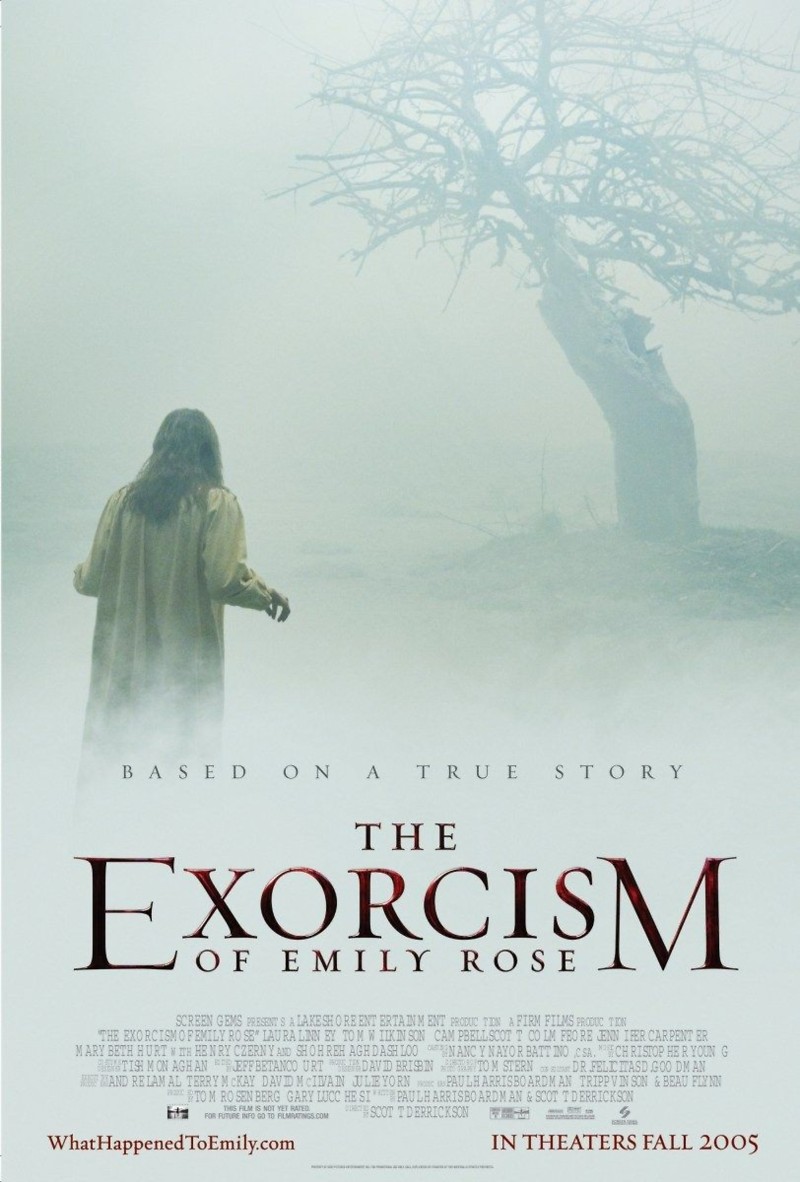
So the next time you walk by the latest horror movie poster and read that very cleverly placed ‘Based on a True Story’ line, take it with a grain of salt. While much of a story’s plot might stem from real events and people, know that a lot of Hollywood storytelling relies on the dramatization of facts and details. That’s not to say no one should watch these movies, in fact, many have proven themselves to be box office and critical successes. Just be aware that truth is always subject to change in the entertainment industry – ‘truth’ Hollywood can pull and play with it like a piece of putty.
Here is a list of Paranormal Horror Films ‘Based on a True Story’:
- The Amityville Horror (1979)
- The Entity (1982)
- The Mothman Prophecies (2002)
- The Exorcism of Emily Rose (2005)
- The Silent House (La Casa Muda) (2010)
- The Amityville Haunting (2011)
- The Possession (2012)
- When the Lights Went Out (2012)
- The Conjuring (2013)
- Annabelle (2014)
- The Conjuring 2 (2016)
-By Christina Persaud
[DISPLAY_ULTIMATE_PLUS]
Sources:
Collis, Clark (November 16, 2012). “‘The Conjuring’: First look at ‘Insidious’ director James Wan’s new horror movie”. Entertainment Weekly.
The Amityville Haunting (Video 2011) – IMDb. (n.d.). Retrieved from http://www.imdb.com/title/tt2042447/?ref_=nv_sr_1
The Amityville Horror (1979) – IMDb. (n.d.). Retrieved from http://www.imdb.com/title/tt0078767/?ref_=nv_sr_2
Annabelle (2014) – IMDb. (n.d.). Retrieved from http://www.imdb.com/title/tt3322940/?ref_=nv_sr_3
‘Based on a True Story’ Is a Rotten Lie I Hope You Never Believe. (n.d.). Retrieved from http://gawker.com/5939683/based-on-a-true-story-is-a-rotten-lie-i-hope-you-never-believe
‘Based on a true story’ It’s the most overused tagline in cinema at the moment, but can we really believe it? | The Independent. (n.d.). Retrieved from http://www.independent.co.uk/arts-entertainment/films/features/based-on-a-true-story-its-the-most-overused-tagline-in-cinema-at-the-moment-but-can-we-really-8216817.html
The Conjuring – Wikipedia. (n.d.). Retrieved February 14, 2017, from https://en.wikipedia.org/wiki/The_Conjuring#The_Nun
The Conjuring (2013) – IMDb. (n.d.). Retrieved from http://www.imdb.com/title/tt1457767/?ref_=nv_sr_2
The Entity (1982) – IMDb. (n.d.). Retrieved from http://www.imdb.com/title/tt0082334/?ref_=nv_sr_1
The Exorcism of Emily Rose (2005) – IMDb. (n.d.). Retrieved from http://www.imdb.com/title/tt0404032/?ref_=nv_sr_1
The Exorcist (1973) – IMDb. (n.d.). Retrieved from http://www.imdb.com/title/tt0070047/?ref_=nv_sr_1
Fact Check: Are These Horror Films Really “Based On Actual Events”? (n.d.). Retrieved from http://io9.gizmodo.com/fact-or-fiction-horror-moves-that-claim-to-be-based-o-1597156875
The Haunting in Connecticut (2009) – IMDb. (n.d.). Retrieved from http://www.imdb.com/title/tt0492044/
Leopold and Loeb – Wikipedia. (n.d.). Retrieved February 14, 2017, from https://en.wikipedia.org/wiki/Leopold_and_Loeb#In_popular_culture
Leopold and Loeb Trial Home Page. (n.d.). Retrieved from http://law2.umkc.edu/faculty/projects/ftrials/leoploeb/leopold.htm
List of films based on actual events – Wikipedia. (n.d.). Retrieved February 14, 2017, from https://en.wikipedia.org/wiki/List_of_films_based_on_actual_events
Major Wilson’s Last Stand (1899) – IMDb. (n.d.). Retrieved from http://www.imdb.com/title/tt1991113/?ref_=fn_al_tt_1
The Mothman Prophecies (2002) – IMDb. (n.d.). Retrieved from http://www.imdb.com/title/tt0265349/?ref_=nv_sr_1
The Possession (2012) – IMDb. (n.d.). Retrieved from http://www.imdb.com/title/tt0431021/?ref_=nv_sr_1
Rope (1948) – IMDb. (n.d.). Retrieved from http://www.imdb.com/title/tt0040746/
Rope (1948) – IMDb. (n.d.). Retrieved from http://www.imdb.com/title/tt0040746/?ref_=nv_sr_4
The Silent House (2010) – IMDb. (n.d.). Retrieved from http://www.imdb.com/title/tt1646973/?ref_=nv_sr_1
‘The Conjuring’ Homeowners Sue Warner Bros. Over Trespassers | Time.com. (n.d.). Retrieved from http://time.com/4089602/the-conjuring-house-suing-warner-brothers/
The ‘true’ story behind ‘The Conjuring’. (n.d.). Retrieved from http://www.usatoday.com/story/life/movies/2013/07/22/conjuring-true-story-perron/2457209/
Very Loosely Based on a True Story – TV Tropes. (n.d.). Retrieved from http://tvtropes.org/pmwiki/pmwiki.php/Main/VeryLooselyBasedOnATrueStory
When the Lights Went Out (2012) – IMDb. (n.d.). Retrieved from http://www.imdb.com/title/tt1743993/?ref_=fn_al_tt_1
[ajax_load_more post_type=”post” max_pages=”1″]

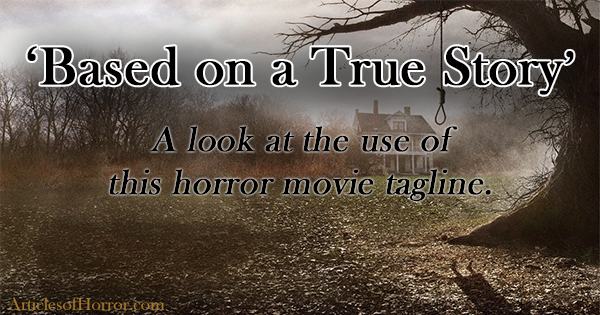
very cool site Christina. Keep it going. Horror lives on strong!
Much appreciated, Jason!